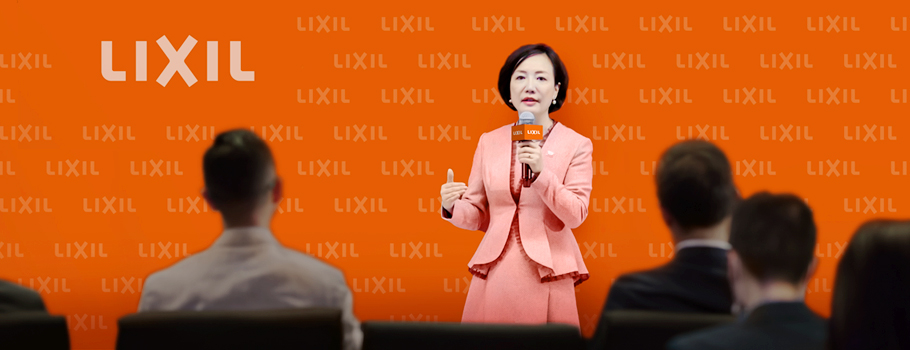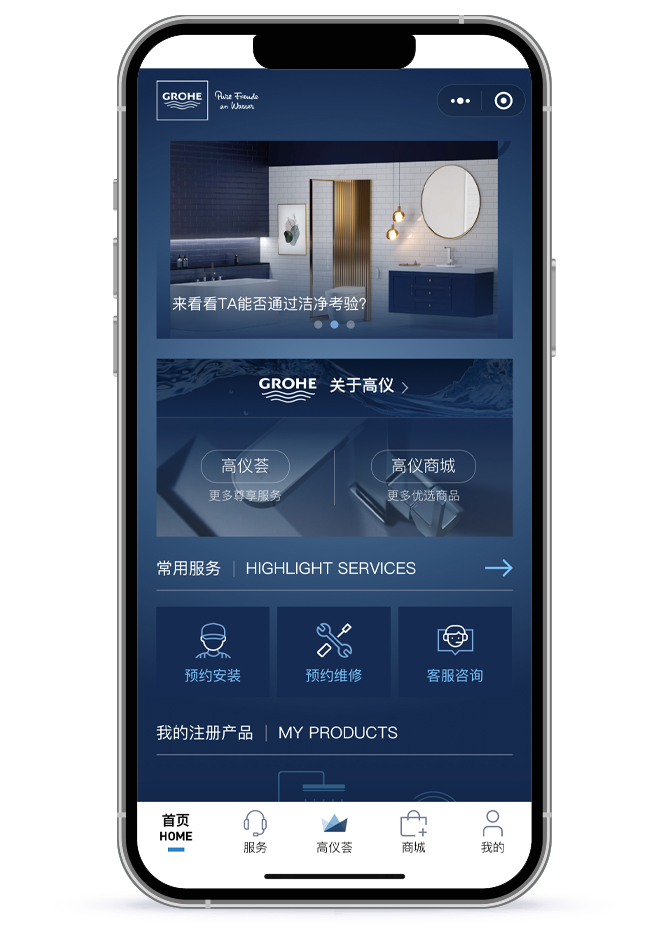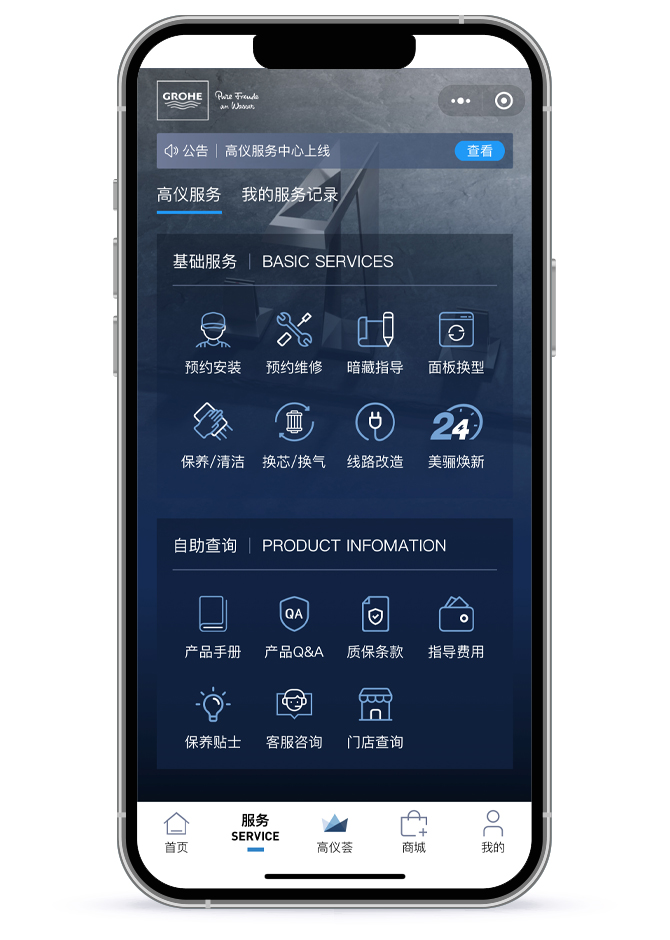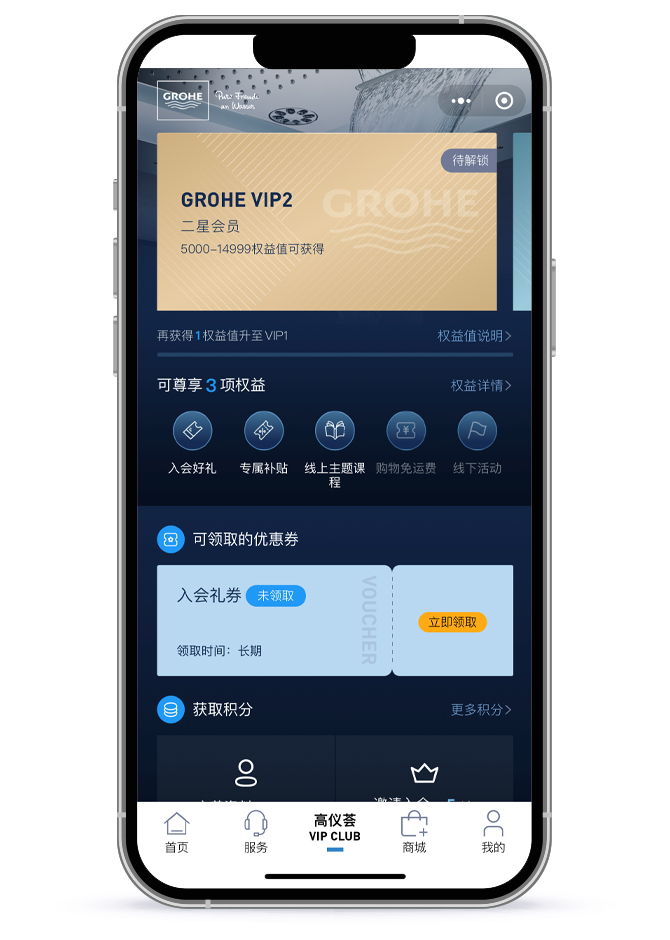LIXIL makes pioneering water and housing products that solve everyday, real-life challenges, making better homes a reality for everyone, everywhere.
- Global Site
-
- English
- Japanese
- Brand Sites
Global
- Global Site
-
- English
- Japanese
- Brand Sites

China's e-commerce market has grown at breathtaking speed. A little under two decades ago, the country accounted for less than 1% of the value of global online transactions.1
Today, it leads the world, contributing more than half of global e-commerce retail sales.2 It also has the largest social media population on the planet, and 84% of its online consumers have shopped on social media platforms.3
In short, China’s digital economy is booming, with huge pools of data being created as a result.4 So what does all this mean for industries that have long relied on a physical connection with consumers?
"Our industry is a bit traditional," says Adele Tao, Leader, LIXIL Water Technology Greater China. Tao has led LIXIL's evolution in Greater China to make it more entrepreneurial, consumer-centric and agile since 2019.5 She says it is vital that companies like LIXIL, which have historically focused on business-to-business channels, embrace digital tools to learn more about the people actually using their products.
China’ s Growing Digital Retail Sector
E-commerce in China accelerated during the COVID-19 pandemic as lockdowns disrupted business-as-usual. New waves of users took to the internet to access information, goods, and services.
People increasingly turned to their smartphones to shop online, further pushing traditional retail operations toward a hybrid model that blends in-store sales with digital commerce. According to research by McKinsey, more than 70% of consumers in China have become true omnichannel shoppers.6
Consumer desire for convenience and efficiency also looks set to rapidly narrow the gap between on-demand and traditional e-commerce.7
Within this online ecosystem, social influencers and social media have become go-to sources for information about what to buy and where to buy it.
As this digital migration gripped China’s retail landscape, companies like LIXIL quickly adapted to build direct touchpoints with their consumers.
An Integrated Solution
LIXIL's digital journey first accelerated with the launch of a 24/7 home renovation service to help consumers during lockdown.
This was just the beginning of a transformative journey for LIXIL - to provide omnichannel digital services that engage new and existing consumers and improve the user experience.
"Instead of offering single products to the consumer, we aim to provide a total service to become a solutions provider," Tao says. "LIXIL' s digitalization strategies, empowered by various tools and systems, help us connect with consumers, hear their thoughts, discover what kind of products they want and understand their insights, their pain points, and preferences."
"Our digital programs now link e-commerce, online social commerce, and offline traditional stores."
Part of this strategy involved opening hundreds of offline-to-online stores across the country to create a seamless shopping experience, running live streams to engage directly with consumers, and implementing a project called One Product, One Code, which tracks LIXIL product sales to provide buyers with e-warranties while generating data to help improve product quality controls.
Using Data to Understand Consumers

Yugo Kanazawa, Chief Digital Officer at LIXIL
This kind of digital transformation is happening globally. LIXIL has deployed consumer database to aggregate numerous consumer data points in one place, including e-commerce visits, use of social media channels, and physical store visits. This enables the company to better understand which types of consumers are interested in which products, where they are located, and how best they can access products and information, explains Yugo Kanazawa, Chief Digital Officer at LIXIL.
"In order to really create a great user experience, we need to first understand the consumer," he says.
A centrally integrated, data-led system can also help engage LIXIL’s partners, designers, and distributors to develop ecosystems that put consumers at the heart of the business.
"As a market leader, we need to change the industry so that we compete with other industries that are after the same sort of wallet share," Kanazawa says, emphasizing the importance of developing an all-encompassing user experience to encourage consumers to invest in a new bathroom or kitchen instead of a new car or a holiday.
Making a Difference
At LIXIL, embracing digitalization facilitates a closer relationship with consumers, encompassing a lifelong journey that increases brand loyalty.
Where previously distributors and dealers recorded consumer data individually, this can now be AI-enabled and stored centrally to streamline processes and give consumers access to the information and services they need. This change can help ensure digital processes are secure and personal information is stored safely.
Data generated directly from consumers can inform new product ranges, leading to designs that better address users’ changing needs. Increasing engagement should facilitate sales growth and, in time, increase product repurchase rates.

Adele Tao, Leader, LIXIL Water Technology Greater China
LIXIL's work in China is one part of its wider global digitalization strategy, aimed at transforming how the company thinks, operates, and connects with its consumers.
Successful digital transformations require a mindset shift that reimagines consumer interactions with a brand and its products. Digital technologies like livestreaming, internet-of-things (IoT) and a potential future metaverse are transforming retail and wholesale markets in China and beyond, and can empower companies to adopt a more agile way of working.
"Once consumers touch our products, it's important to stay connected with them and create a whole life journey," Tao says.
Our Stories
- Backing People and Passions to Drive Innovation
- How Toilets in Schools are Catalyzing Change in Communities
- Building the Future by Recycling the Past
- Reinventing Consumer Connections in the World's Largest E-commerce Market
- Tackling Household Water Inefficiency in a Water-Stressed World
- Plugging the Plumber Shortage
- Pioneering Solutions to a Sewage Crisis in Rural Alabama
- Meet the Citizen Developers Changing How We Work
- Design and Brand Identity Transformation at LIXIL
- Three Changes to Prepare Europe’s Sanitary Industry for Growth
- Three Steps to Creating an Inclusive Culture
- From Linear to Circular: Giving Products in Your Home a New Lease of Life
- Crafting Unique Experiences as well as Products
- GROHE X: A Digital Brand Experience
- Design-led Innovation Delivering True Value
- Responsible Use of Plastics
- Empowering our People for an Agile Future
- Turning the Waves of Change into Opportunities
- SATO Tap: a New Handwashing Solution for All
- New Ways of Working Take Flight at LIXIL
- INAX: Rituals of Water
- Refreshing our sanitation targets, standing firm on our commitments
- Developing Attractive and Differentiated Products
- Conserving Water: The New Normal
- Insulating For a Warmer and Healthier Home
- Open Kitchen, Open Communication
- Tackling Open Defecation in India
- Shaping the Future of Faucets, One 3D Layer at a Time
- Bathed in Culture and Tradition
- Remodeling the Housing Market
- LIXIL's AQUA CERAMIC makes bathroom stains a thing of the past
- The Technology of Water
- Tackling Challenges in Global Sanitation and Hygiene



